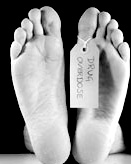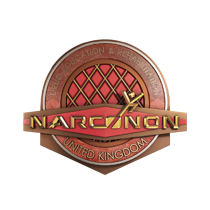Suboxone Abuse
Suboxone is the name of a recently-released formula for the treatment of opiate addiction. In 2003, the Substance Abuse and Mental Health Services Administration released news about this new drug that was supposed to be used in maintenance or detoxification of opiate addiction. This means that people who were addicted to opiates might be put on this drug for a long term, as a way of keeping them off heroin or abuse of prescription drugs. Medicating a person in this way to keep them from abusing drugs is referred to as maintenance treatment.
Some doctors will transfer a person from abuse of prescription opiates or the use of heroin onto Suboxone and then very gradually taper the dosage of Suboxone. The idea is to help the person get entirely off the opiates over a period of time, without experiencing withdrawal symptoms.

In real life, use of Suboxone is marred by problems. Suboxone is itself a frequently abused drug. The other problem is that this method of treatment may help a person avoid some of the worst of withdrawal symptoms, but the reasons they abused drugs and became addicted are not addressed.
In Their Own Words: People Talking about Suboxone Problems
A quick look at sobriety support websites shows hundreds of postings by addicted people and their families who are looking for help with Suboxone. A mother states that once her son is out of a rehab programme for a month or two, he is on heroin in the morning and his Suboxone prescription in the afternoon, and that eventually she finds out he is forging cheques and selling his Suboxone again.
A woman on Suboxone wonders how it will affect her detoxification and recovery that she has been taking Norcos (hydrocodone-containing painkillers) along with the Suboxone.
A young man who was interviewed after he completed the Narconon drug and alcohol rehabilitation programme commented that during an earlier attempt at sobriety, he entered a Suboxone programme, but never used the drug unless he failed to acquire the heroin to which he was addicted. In that case, a little of the Suboxone would keep his withdrawal symptoms away. He would sell any of the drug he did not need.
SAMHSA Reports that Suboxone is Seldom Effective Treatment
The Substance Abuse and Mental Health Services Administration itself admits that Suboxone treatment itself is not sufficient to eliminate addiction. In the report, Clinical Use of Buprenorphine in the Treatment of Opioid Addiction, SAMHSA said: “…pharmacotherapy alone is rarely sufficient for the long-term successful treatment of opioid addiction.” In other words, Suboxone is really not a form of treatment. A person addicted to opiates needs full rehabilitation in order to recover their sobriety.
The Drug Enforcement Administration reports that Suboxone products are prone to abuse, despite the presence of an ingredient that is supposed to prevent the euphoric effect that makes opiates popular. And while the primary ingredient buprenorphine does not create depress respiration as much as opiates, when Suboxone is abused at the same time as benzodiazepines as often occurs, the combined effect can be and has been deadly.
Finding Real Help for Opiate Addicts
An opiate addict deserves real help when he or she decides to leave addiction behind and get clean. Real help comes from the lowering of cravings, from helping each person repair the mental and physical damage done by addiction and from rehabilitating the life skills that are needed to help a person stay sober in the future. These are the services provided at Narconon drug and alcohol rehabilitation centres around the world.
The Narconon programme not only addresses the debilitating effects of drug abuse on the mind and body, but also resolves why a person turned to drugs in the first place. As a result, a person can graduate from the programme into a new life free from drug use.
More info on prescription drugs here.
Find out how the Narconon programme can help someone you care about recover their sobriety without the use of narcotics with their potential for abuse.
References:

